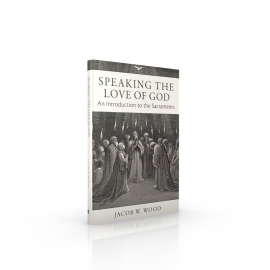By Jacob W. Wood
Dr. Jacob W. Wood is Assistant Professor of Theology at the Franciscan University of Steubenville. He has presented at conferences nationally and internationally. He is the author of Speaking the Love of God: An Introduction to the Sacraments.

Even though it may not be accompanied by the same visible signs as the first Pentecost and the first Confirmations, since Confirmation is our own personal Pentecost it effects a dramatic transformation of our lives. It does this by completing the grace of our Baptism, raising us to spiritual maturity, empowering us with mature spiritual responsibility, and imprinting a new sacramental character on our souls.
Confirmation completes our Baptism by conferring upon us a more complete sharing in the Holy Spirit. It is true that Baptism marks the entrance of the Holy Spirit into our souls. However, the presence of the Holy Spirit in our souls is not a simple yes or no question. The more we welcome the Holy Spirit into our souls, the more of an effect his presence will have on us. By participating in Confirmation, we cooperate with the grace of the Holy Spirit which God wants to pour into our souls and open ourselves to a more complete reception of what was offered to us at Baptism: divine filiation, union with Christ, the Gifts of the Holy Spirit, and union with the Church (CCC 1302).
As mentioned above, the Gifts of the Holy Spirit have been associated with Confirmation in a particular way since Patristic times. Following the teaching of the Prophet Isaiah, the Church enumerates seven of these gifts: wisdom, understanding, counsel, fortitude, knowledge, piety, and fear of the Lord (Is 11:1–2; CCC 1831). More than any other habitual graces that God gives us, these gifts make us act most like God because they give us a share in actions which belong first and foremost to God (Thomas Aquinas, Summa theologiae, Ia–IIae, q. 68, a. 8, resp.). Following the teaching of St. Paul, the Church acknowledges twelve fruits that follow from a life lived in cooperation with these gifts: charity, joy, peace, patience, kindness, goodness, generosity, gentleness, faithfulness, modesty, self-control, and chastity (Gal 5:22–23; CCC 1832).
By completing our Baptism and conferring on us a special share in the gifts and fruits of the Holy Spirit, Confirmation raises us to the status of spiritual adults with adult responsibility in the Church. That does not mean that we automatically become natural adults or that Confirmation somehow changes our status in human society. A spiritual adult is someone who has received all the habitual grace proper to the mature Christian life, and so is called to an adult share of responsibility in the exercise of Christ’s prophetic, priestly, and royal offices. This maturity and responsibility may or may not correlate with natural age. Sometimes very young children, who receive the Sacrament of Confirmation early due to grave circumstances, become powerful witnesses for Christ; other times adult converts, who receive the sacrament without all the attention and preparation that it is due, are lax in their public lives. What determines how well we will benefit from the graces given us at Confirmation is the level of interior cooperation that we give the Holy Spirit when it comes down upon us at Confirmation, not our external age.
If spiritual adulthood is not correlated with natural age, all the more so is Confirmation not correlated with a rite of passage into natural adulthood. As it happens, since in the Latin Rite the Church has set the age for Confirmation at the age of discretion and since the age of discretion is the age at which people begin preparing to make adult decisions in their lives, Confirmation is often confused with one of those adult decisions that people make, like whether to get married or enter religious life, what college to go to, what career to choose, etc. People often treat Confirmation like it is the sacrament whereby we confirm what was professed on our behalf at our Baptism. But that is precisely the reverse of what happens. While we renew the promises made by us or on our behalf, it is God who confirms what was begun in us at Baptism. What began in us, moreover, was a free gift of God’s grace—it does not need any further ratification to become effective (CCC 1308).
As a seal of all the graces that Confirmation imparts, it also imprints upon our souls a character. That character, like the character of Baptism, gives us a share in Christ’s prophetic, priestly, and royal offices. But it gives us a different share in those offices than the character of Baptism.
Children lead more private lives because much of their energy is spent on their own physical, intellectual, and moral development. Even when they are with others—at school, for instance—they are often engaged in activities that have their own personal development as a goal. With adults it is otherwise. Although adults still need to develop intellectually and morally, they spend much more of their time in activities which have the development of others as their goal, be it raising a family, working to provide for a family, and/or undertaking some form of service. So also in the Christian life. By the character of Confirmation, Christians are empowered to take a public share in Christ’s prophetic, priestly, and royal offices.
You Might Also Like

“Our words indicate our thoughts, but our thoughts don’t make anything happen. . . . It’s not the same with God.” In Speaking the Love of God: An Introduction to the Sacraments, Dr. Jacob W. Wood shows how Christ gives his Church the power to speak with God’s voice in the seven sacraments. In this foundational guide to the sacraments, discover the power of the signs and words that transform us by grace and prepare us for glory.

